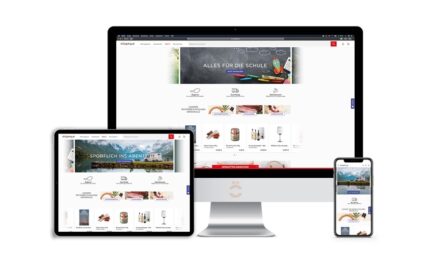
La Poste says volume decline accelerated in first half
La Poste Group’s chairman, Jean-Paul Bailly, has said the company achieved “robust results” against an unfavourable economic backdrop in the first half of the year. Issuing its latest results this week, La Poste Group said its consolidated revenue reached €10,887 million on 30 June 2012, an increase of 0.9% or 0.1% at constant consolidation and exchange rates.
Mail revenue came in at €5,827 million for the first half (of which €5,512 million excluding intercompany), down 1.9% compared with the first half of 2011 and down 2% at constant consolidation and exchange rates.
Volumes declined at a faster pace (down 5.8%), largely as a result of the adverse economic climate. The drop in volume was partially offset by a number of positive factors: impact of the French elections, solid results internationally, and the roll-out of new offers.
Within Mail, the contribution of Sofipost is getting stronger, with revenue up 11% at €557 million as a result of a dynamic commercial development in each of its four business divisions.
Parcels-Express posted strong revenue growth over the half year (up 7.6%) at €2,695 million (of which €2,674 million excluding intercompany) in a competitive environment still marked by price pressure in France and internationally. At constant consolidation and exchange rates, growth was 4.6%.
In the deferred parcel service to individuals in France, ColiPoste business was up 2.6% with particularly strong growth in the second quarter. Higher volumes (up 2%), especially for Colissimo BtoC, and a favourable price/mix effect contributed to this development. GeoPost’s express parcel business in France and abroad grew substantially with revenue up 9.6% (up 5.5% at constant consolidation and exchange rates), the volume effect being +6.3%. With the exception of Spain and Portugal (due to a difficult local environment), all countries posted growth, particularly the United Kingdom, Eastern Europe and Russia, where sustained growth rates were comparable to those of 2011.
Net banking income for Banking activities was stable at €2,668 million (of which €2,654 million excluding intercompany) in a climate of low interest rates and volatile financial markets.
Overall inflows were up, largely from regulated savings accounts (Livret A). As a distributor of life insurance, La Banque Postale increased its market share, despite inflows down compared to first-half 2011. In a slowing loan market, La Banque Postale consolidated its position in property lending, with an increased market share and growth of more than 8% in outstandings loans. Consumer credit outstandings also rose in a tightening market. Loans to legal entities got off to a good start.
The new health insurance offer and financing services for legal entities, launched at the end of 2011, are being rolled out throughout the territory, among financial advisers.
In addition, short-term loans are being offered to local authorities since 20 June 2012. The initial funding envelope of €2 billion was increased to €4 billion at the beginning of July to address growing demand. In the long term, La Banque Postale wishes to offer a comprehensive range of financing services to the entire local public and social economy sectors.
La Poste Retail Brand posted first-half sales of €2.1 billion. Mail sales declined by 7.5% as electronic communications continued to rise (although sales still included the anticipation effect from the rate increase on 1 July 2011), while Parcels sales were up 4.1%. Internet sales for these two segments increased sharply. Fewer property and consumer loans were sold as a result of challenging market conditions.
La Poste Mobile recorded 165,000 sales for the period. After customer numbers fell during the first two months of 2012 – consistent with the arrival of a new operator – business grew in the second quarter with a net gain in customers, confirming the model’s relevance. The full range has been available in all 10,000 post offices and online since the beginning of July.
Increased operating profit
The Group’s consolidated operating profit stood at €632 million compared with €504 million for the first half of 2011.
The consolidated operating profit for Mail was €470 million, down €19 million (€17 million at constant consolidation and exchange rates). Despite the strong drop in volumes, the development of new offers and cost control enabled the operating margin to remain nearly unchanged.
Parcels-Express posted operating profit of €210 million, up 1.7% or 1% at constant consolidation and exchange rates.
The contribution of Banking activities to the Group’s operating profit was up €102 million at €348 million, thanks to cost control efforts and a lower provision for Greek risk (€30 million at 30 June 2012 vs €158 million at 30 June 2011). Residual exposure to Greek debt is marginal (€17 million).
The Group’s operating profit consists of business lines’ operating profits after deduction of shared service expenses and the cost of national postal coverage.
After taking account of the financial result, taxes and the share of profits of equity associates (stable at €106 million), net profit Group share came in at €437 million at the end of June 2012, compared with €377 million for the first half of 2011 (up 15.4% at constant consolidation and exchange rates).
Investments in industrial facilities and network upgrades
The Group’s gross investments totalled €467 million, of which €387 million for non-banking activities, and €80 million for La Banque Postale. These investments, 90% of which were made in France, were mainly devoted to in IT resources, the continued modernisation and upgrading of post offices, and the increase in Express capacity in Europe.
The Group also continued its targeted acquisition policy, which totalled €40 million (excluding banking activities), in line with strategy. In particular, Mail acquired two companies: Mixcommerce in April 2012, to supplement its e-commerce offer, and a 55.19% stake in Adverline, one of France’s top 10 web advertising companies, in June 2012, to supplement the Mediapost portfolio, which now encompasses all areas of multichannel customer relations expertise. For its part, Parcels-Express increased its stake in Spain’s Seur SA, which is now fully consolidated (full-year revenue of €80 million), and acquired Hungary’s GRT Logistics.
On 6 July 2012, as announced in December 2011, La Poste and Swiss Post created Asendia, a joint venture bringing together the international mail activities of both operators. Asendia has operations in three continents (Europe, North America and Asia) and 25 offices in 15 countries.
Ongoing improvement in service quality
The commitment to service and quality, a core component of the Group’s strategy, is once again reflected in high quality of service during the period: an average of 87.6% of priority mail was delivered within one day and almost 95% of parcels within two days. As for the average waiting time at post offices, it keeps improving: over the period, the average waiting time was 2.3 minutes, largely as a result of the on-going modernisation of the post office network. With respect to La Banque Postale, quality is improving both in terms of faster cheque processing — particularly with the newly installed automated cheque deposit machines in post offices — and in terms of loans and payment cards granted.
This constant care vis-à-vis its stakeholders and the special relationships it has with its customers and partners have resulted in La Poste being recognised as a Group in which one can have every confidence. La Poste was voted No. 1 in customer relations, service businesses category, in the “Podium de la Relation Client” award.
In addition, the Group, which makes 71% of its purchases from companies operating in France, was cited as “an example to follow” for its responsible purchasing policy: the Group signed an agreement in 2004 to support small and medium-sized businesses (Pacte PME) and today is France’s leading responsible procurement decision-maker.
Within the Group, confidence has been increasing year on year: 56% of postal workers say they feel confident about their future, and 60% feel confident about the future of La Poste (up 12 points and 17 points respectively over June 2009)9.
Lastly, 95% of French people consider the Group to be “useful to society”10, with La Poste holding the top ranking of major companies deemed most useful to French society.
Continued strengthening of the balance sheet structure
Equity Group share was up €411 million at €7,194 million at 30 June 2012, after payment to shareholders of a €144-million dividend.
La Poste Group continues to consolidate its balance sheet structure. The Group’s net debt amounted to €3,441 million, down €1,103 million over 31 December 2011. The net debt to equity ratio11 stood at 0.48 at 30 June 2012, versus 0.67 at the end of 2011 and 1.08 at the end of 2010.
As part of La Poste’s €2.7 billion capital increase, to which the French government and Caisse des Dépôts subscribed, a second tranche of €1.050 billion was paid in April 2012. The third and last payment (of €600 million) will be paid in 2013.
Responsible practices: a committed player
In March 2012 the Chairman of La Poste opened a Major Dialogue on wellbeing in the workplace. A listening and dialogue programme was launched at the local level, while a commission was created at the national level, chaired by Jean Kaspar, with the aim of analysing the situation of the company and its employees. A report will be submitted to La Poste’s Chairman in September.
Mindful to support its social model, the Group made a number of commitments during the half year, including a new three-year incentive agreement signed on 18 June 2012 with unions. This agreement reinforces the principle of fair profit sharing.
La Poste is determined to remain one of France’s leading employers and recruiters, and accordingly its management will hire at least 10,000 permanent-contract employees between 2012 and 2014. As part of its commitment to providing jobs for young people, every year La Poste devotes considerable resources to offering apprenticeship or vocational training contracts.
At least 7,500 alternating work-study contracts will be offered during the above-mentioned period.
In first-half 2012, La Poste also pursued its commitment to people with disabilities by signing a new national agreement on 08 March 2012 covering a number of areas, including recruitment, training and access.
With respect to reducing CO2 emissions, the Group announced in February 2012 the launch of its carbon neutrality voluntary process. The Group has ensured the carbon neutrality of all its Mail and Parcels offers since 1 March 2012, and of its Express offers in France and abroad since 1 July. In addition, the first electric vehicles were delivered during the first half of 2012 as part of an order of 10,000 vehicles to be supplied by 2015, including 1,600 in 2012.
Outlook
The continuing economic slowdown in Europe, the financial crisis and movements affecting interest rates and the financial markets are generating a number of uncertainties for the second half of the year.
The Group’s performance will remain sensitive to changes in Mail volume and market conditions. The Group will focus its efforts on the continued development of each business line and on operating performance, while remaining mindful of quality of life in the workplace and its social model.
The Group confirms its recurring operating margin target for 2012, between 3% and 4%.













